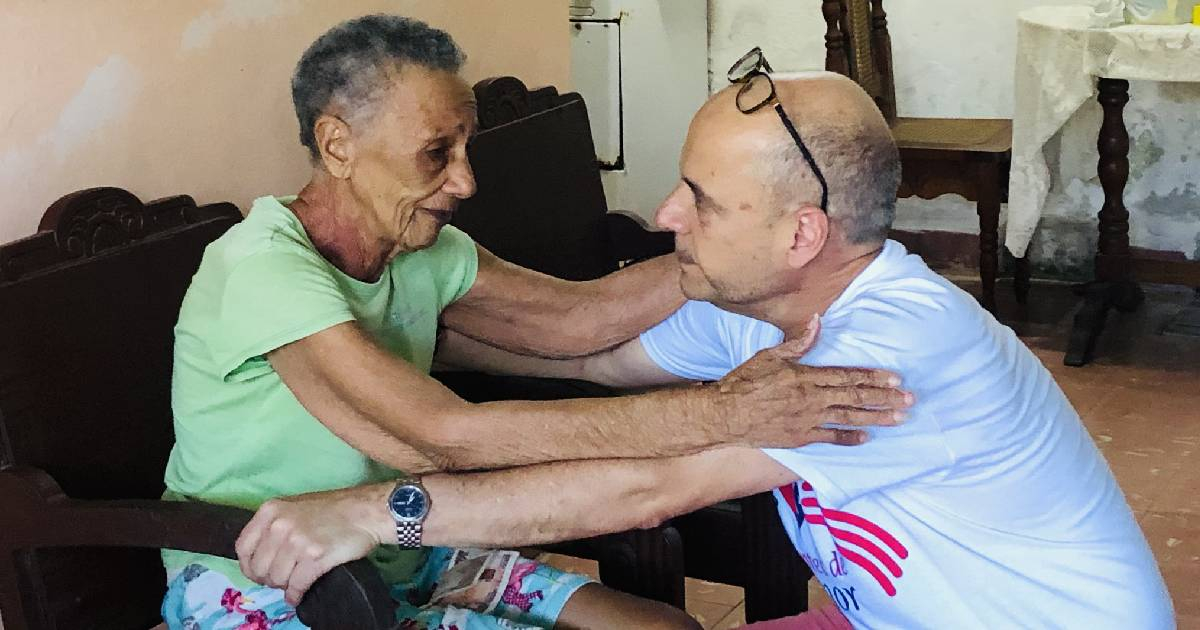
Related videos:
Cuban-American activist Carlos Lazo, leader of the Puentes de Amor movement, declared the controversy with the Cuban regime over the alleged blockade of humanitarian aid to hospitals on the island to be closed, and advocated for unity because "hard times are coming."
In a post on Facebook, where he recounts a personal anecdote about disagreements among neighbors, Lazo stated, "we have been pulling each other's hair for several days, those from here and those from there. Good people, united in the neighborhood and in the family, asking for each other's heads"; and concluded that "the truth is that the neighborhood needs to prepare because tough times are coming."
"The neighbors will have to come together because what is coming from the north is a massive storm. And if we don't face it very closely and together, we will be overwhelmed," he emphasized.
Her statements come on the same day that the Ministry of Public Health issued an official statement clarifying that "it has never refused to accept donations directly at its institutions."
"Since last Thursday, February 20, statements from Carlos Lazo, leader of the Puentes de Amor Movement, have been circulating on social media regarding his dissatisfaction with the donation delivery process in Cuban health institutions and the possibility of conducting visits to them," the note states.
Add that "The Ministry of Public Health has never refused the delivery of donations directly to its institutions. Those who wish to do so only need to communicate it in advance, which aims to ensure an orderly delivery that does not interfere with the care and administrative processes of the health units."
The activist's dissatisfaction was evident in a statement where he claimed that "Cuban authorities impose restrictions on the direct delivery of medical supplies and powdered milk to pediatric hospitals on the island."
In a statement published on their social media, they asserted that the regime was hindering the humanitarian work that their organization has been doing for years to benefit the Cuban population. They claimed that the problem had been ongoing for months, but that the activists remained "focused on the task of delivering donations to Cuba," despite a "mysterious regulation" that prohibited them from visiting medical centers.
The evolution of Lazo as a public figure is complex. In 2022, his open support for lifting the embargo, his visits to Cuba, and his meetings with the Cuban government earned him harsh criticism from the exile community in Miami.
The Cuban community in Florida even organized a campaign on Change.org that collected over 10,000 signatures to declare him "persona non grata," accusing him of being an advocate for the regime.
Frequently Asked Questions about Carlos Lazo and the Cuban Regime Controversy
Why did Carlos Lazo close the controversy with the Cuban regime?
Carlos Lazo concluded the controversy with the Cuban regime because he believes that "hard times are coming" and it is necessary to unite to face a complicated future. Despite the restrictions he has denounced, Lazo advocates for unity and collaborative efforts to overcome difficulties.
What did Carlos Lazo report about the delivery of donations in Cuba?
Carlos Lazo denounced that the Cuban authorities impose restrictions on the direct delivery of medical supplies and powdered milk to pediatric hospitals on the island. According to Lazo, these restrictions have hindered the humanitarian work of his organization, Puentes de Amor, which has been assisting the Cuban population for years.
What has been the Cuban regime's response to Carlos Lazo's accusations?
The Cuban regime, through the Ministry of Public Health, denied having blocked the delivery of donations and stated that those wishing to provide assistance must simply notify in advance to ensure an orderly delivery. However, they acknowledged that there have been instances when entry was denied to Lazo for not having given prior notice.
How has Carlos Lazo's stance towards the Cuban government evolved?
Carlos Lazo has shifted from being seen as an ally of the Cuban government to a critic of the regime. Although he initially advocated for the lifting of the U.S. embargo and maintained close relations with the Cuban government, recent restrictions and obstacles to his humanitarian work have led to a transformation in his rhetoric, which is now more critical of the regime.
Filed under: